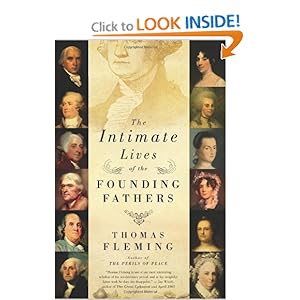Channelling George Washington: "So Help Me God"

“I see the historians are at it again.”
“At what, Mr. President?”
“Arguing about whether I added ‘So help me God’ at the close of my recitation of the presidential oath of office. This is the third or fourth time this dispute has surfaced.”
“I’ve read those words in at least a dozen accounts of the ceremony.”
“Even you, an historian of some note, don’t know it’s not part of the oath as it appears in the Constitution?”
“When you put me to the test, I realize it isn’t. Did you add the phrase?”
“No. For a very good reason. We were determined to create a government in which there were no links to religion. We had seen how divisive religion had become in Europe in the previous two hundred years. Especially troubling to Americans was the way it tore England apart in the civil war of the seventeenth century, which ended with beheading of King Charles I and making Oliver Cromwell a dictator for twenty years.”
“That leaves us with an even thornier question. Did you believe in God at that time? I know you’ve carefully avoided making statements about your religious beliefs.”
“For the very same reason that I did not say ‘So help me God.’ I wanted to be the leader of all the American people. But I also never said a word against having a religious belief.”
“You thought religion was important in the life of the nation?”
“Immensely important. That’s why, when I was president, I responded promptly to a letter from the Hebrew synagogue in Newport, Rhode Island. They told me how pleased ‘The people of Abraham’ were to be accepted as American citizens after so many centuries of being deprived of their rights in other nations.”
“What did you say?”
“I told them how delighted I was to see them enjoying what all Americans were guaranteed: liberty of conscience and the immunities of citizenship. I did not consider this tolerance, which suggested that one class of people were permitting another group to practice their religion. Freedom of religion was a right every American possessed. The government of the United States ‘gives bigotry no sanction, and persecution no assistance.’”
“Which takes us back, in a way, to the question of your personal religious beliefs.”
“I was raised as a member of the Church of England, which after the Revolution became the Episcopal Church in America. I attended church regularly and served as vestryman of my local church. But as I grew older, I tended to focus more on a simple affirmation of God’s role in our lives. An unforgettable experience when I was still a fairly young man led me in this direction.”
“Would you describe that experience?”
“In 1758, I was in command of a regiment of Virginians which was part of the British army that marched west to capture the French fort on the site of present-day Pittsburgh. One night, during a skirmish with the enemy, I was trapped between two regiments in our army, with bullets whistling from both directions. I thought sure I was a dead man, and could not quite believe it when I survived without a scratch. That became what some people call a ‘faith experience’ for me. I acquired a sense of God’s mysterious protection, which never left me.”
“Were you referring to that experience in the letter you wrote to Martha when you were appointed commander of the Continental Army?”
“Yes. I told her I would rely ‘confidently on that Providence which has heretofore preserved and been bountiful to me.’”
“I seem to recall you wrote a letter to your brother Jack, after the Battle of Monmouth, in which you expressed an even stronger sense of divine protection.”
“At Monmouth, my second in command, General Charles Lee, retreated without orders, leaving me and the remaining two-thirds of the army to meet the oncoming British attack. For a few minutes I thought catastrophe loomed. I knew little or nothing about the wooded terrain into which we had marched. Then one of my aides rushed up with a New Jersey officer whose father owned the land all around us. He was able to point out nearby hills and declivities that enabled me to deploy our regiments to meet the assault. After we beat them back to their camp and they crept away to New York in the night, I told Jack I was convinced that God had placed the American army in the best possible position to meet the oncoming British attack. I still think so.”
“This is all very illuminating, Mr. President. Thank you for your candor.”
“There is one thing that I’d like to add.”
“By all means.”
“When I took the oath office as president and did not add ‘So help me God’—I spoke those words in my mind and heart.”